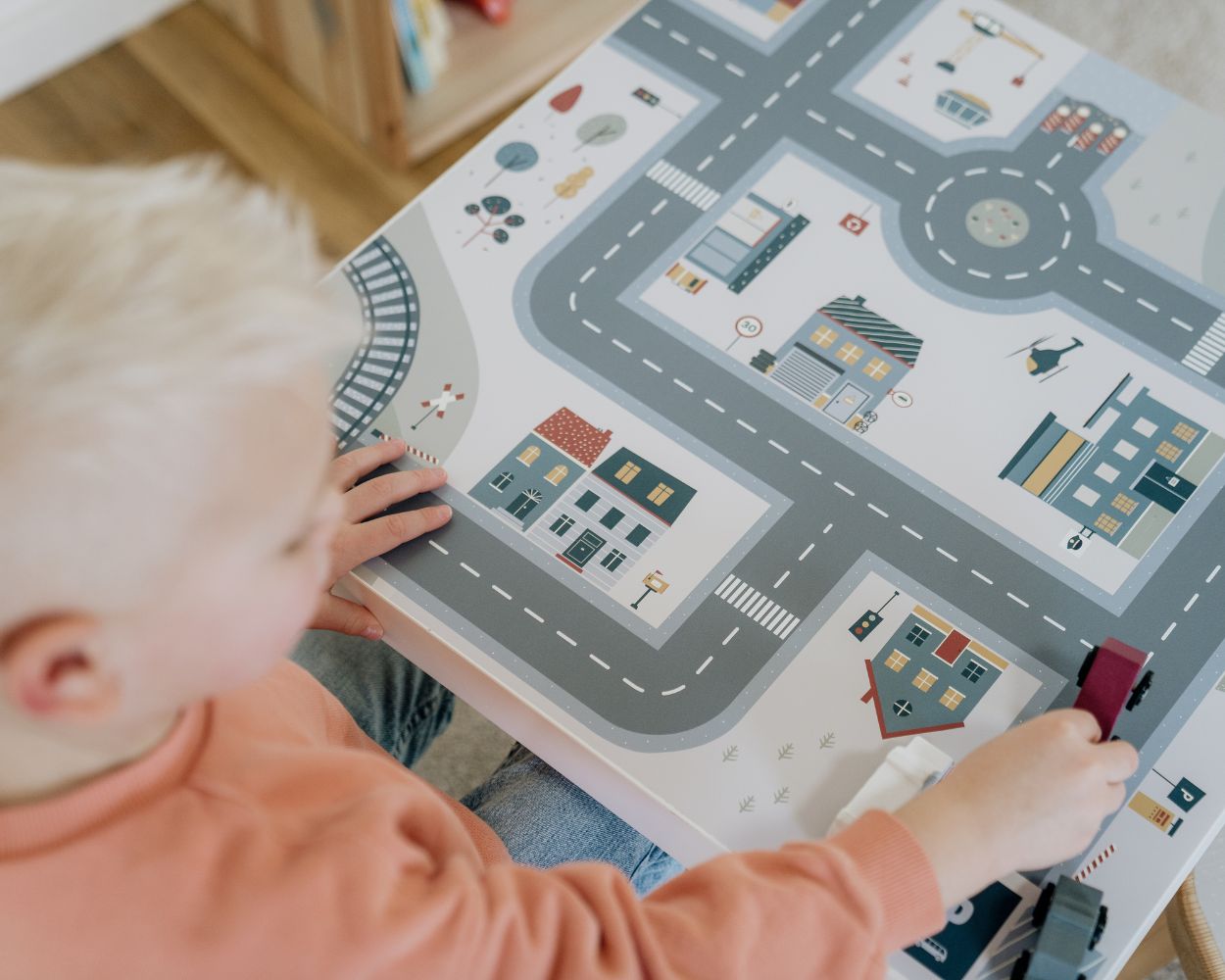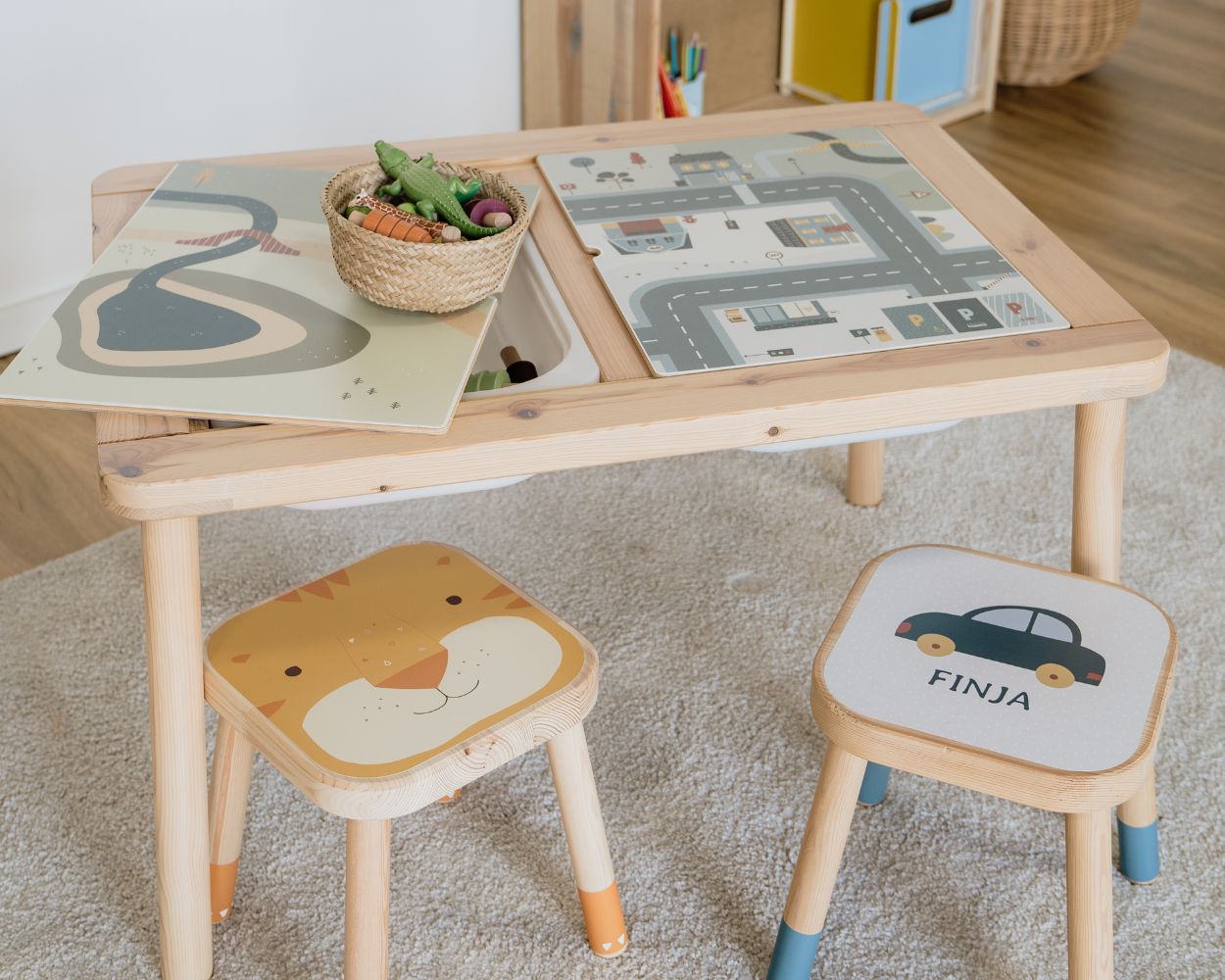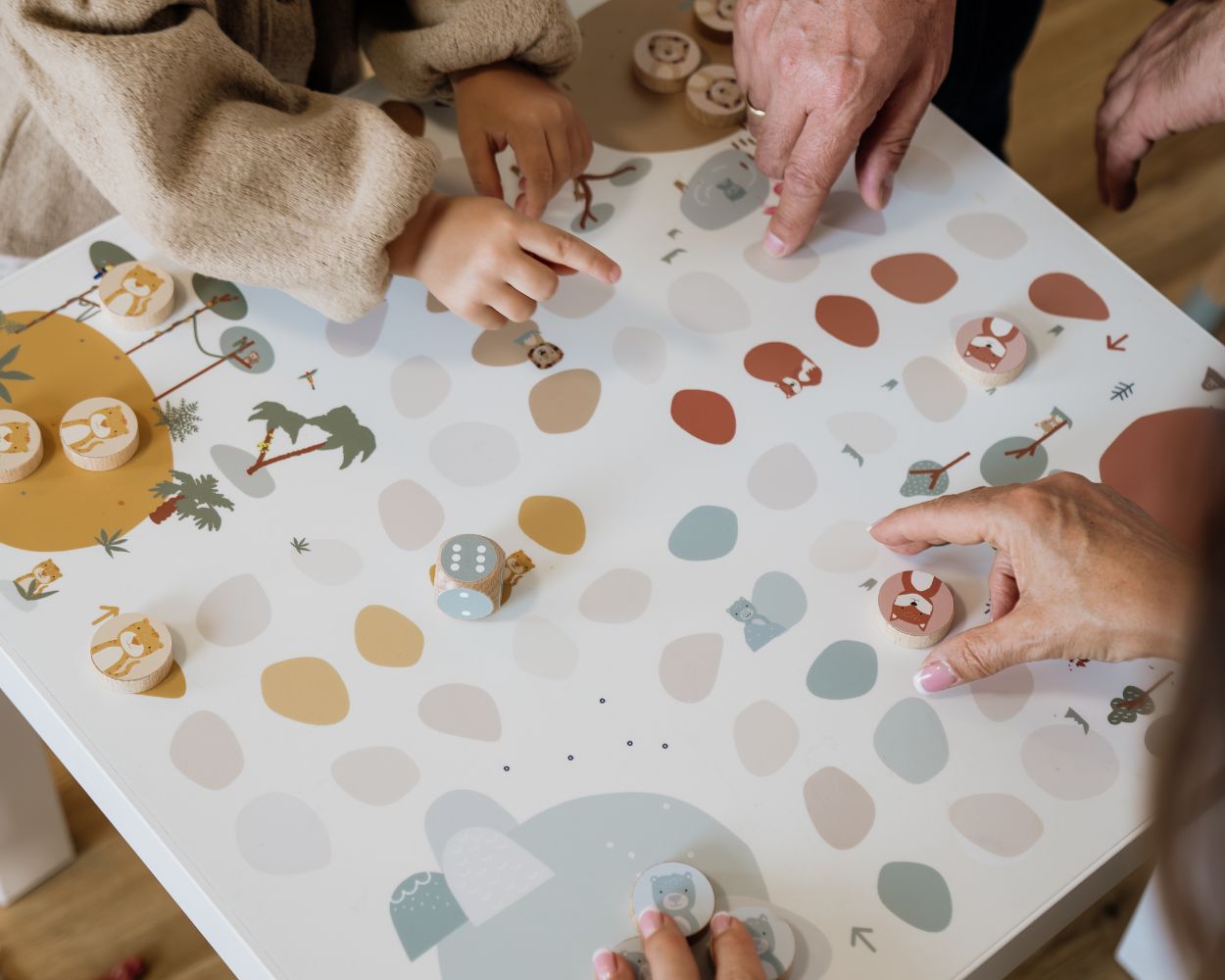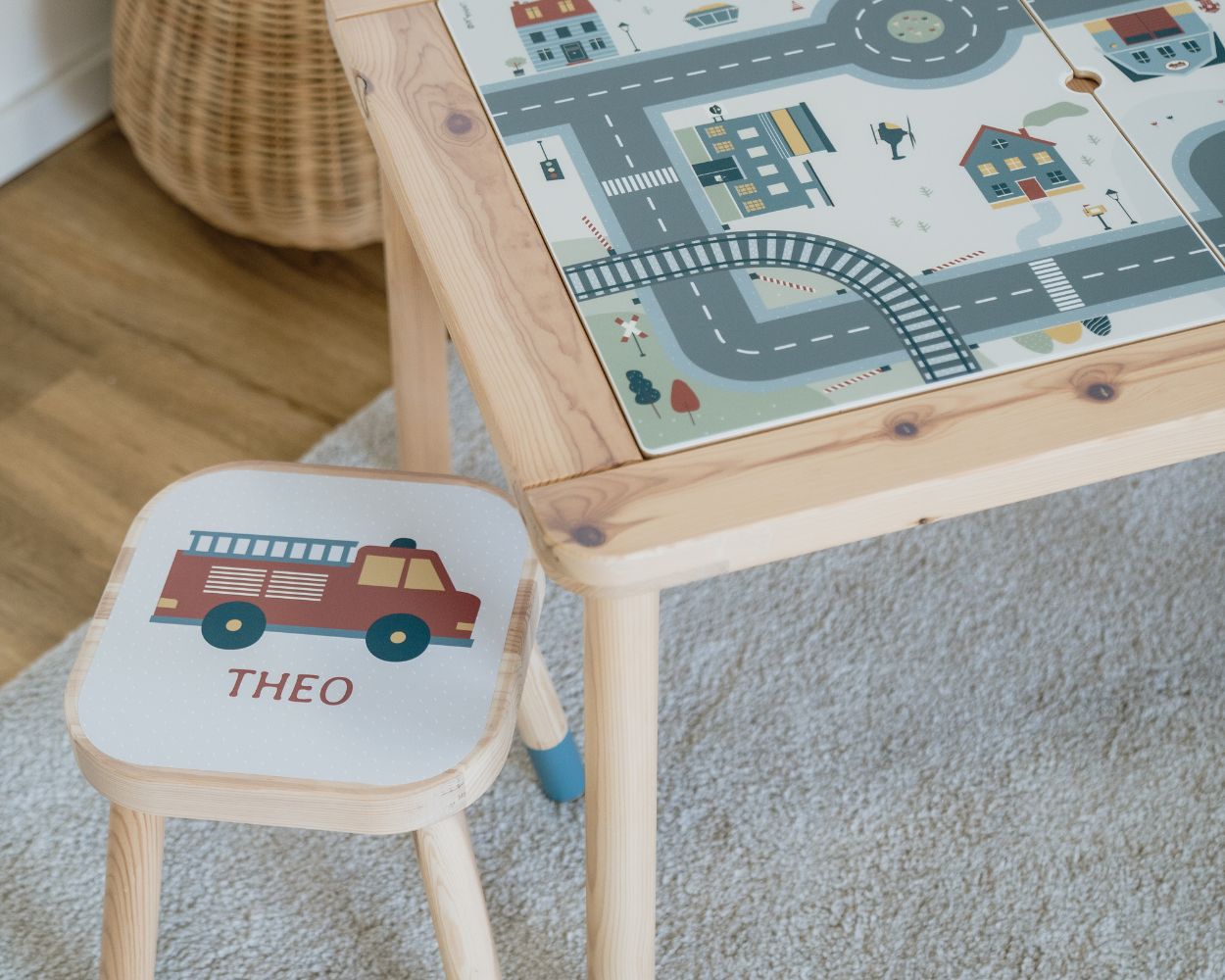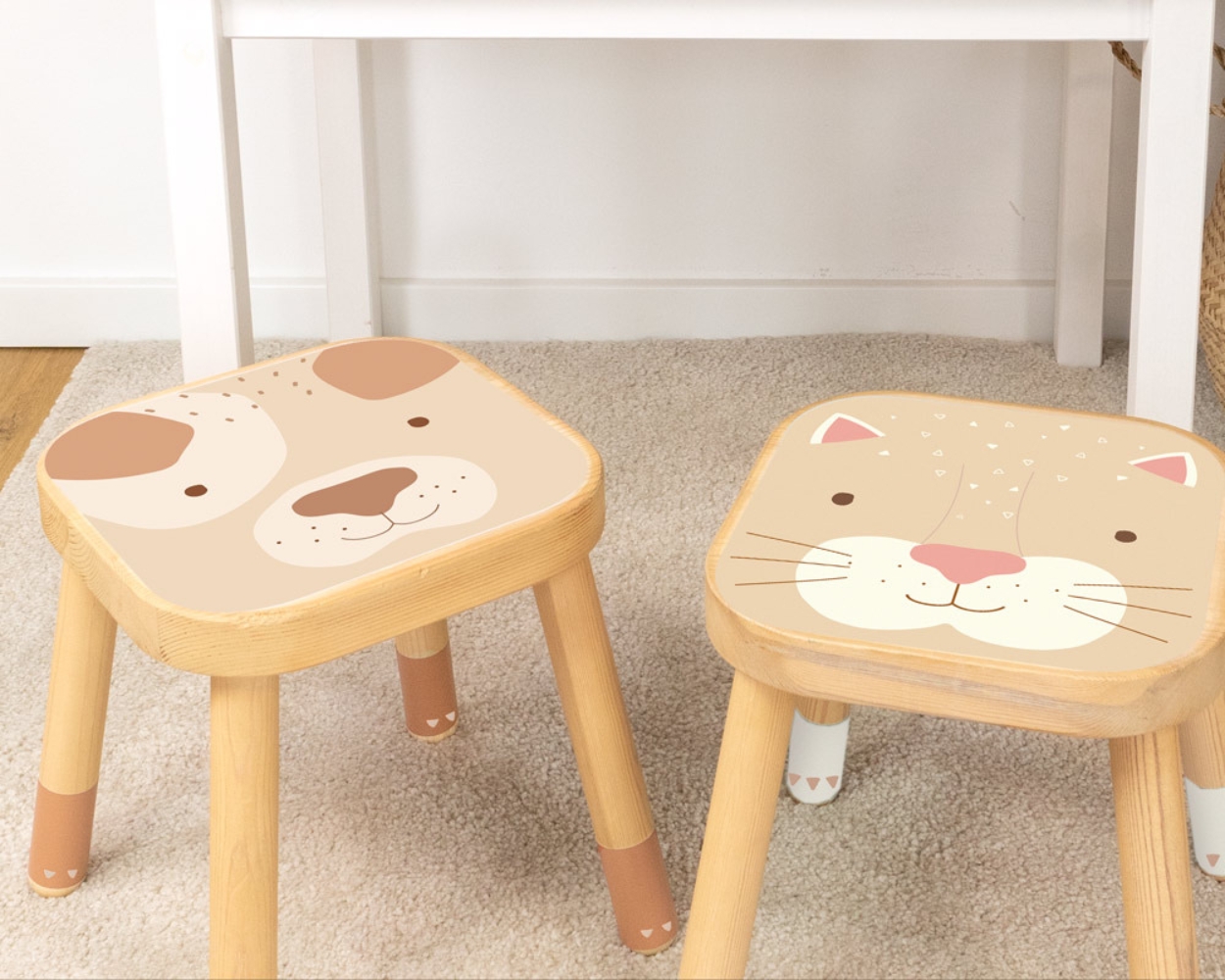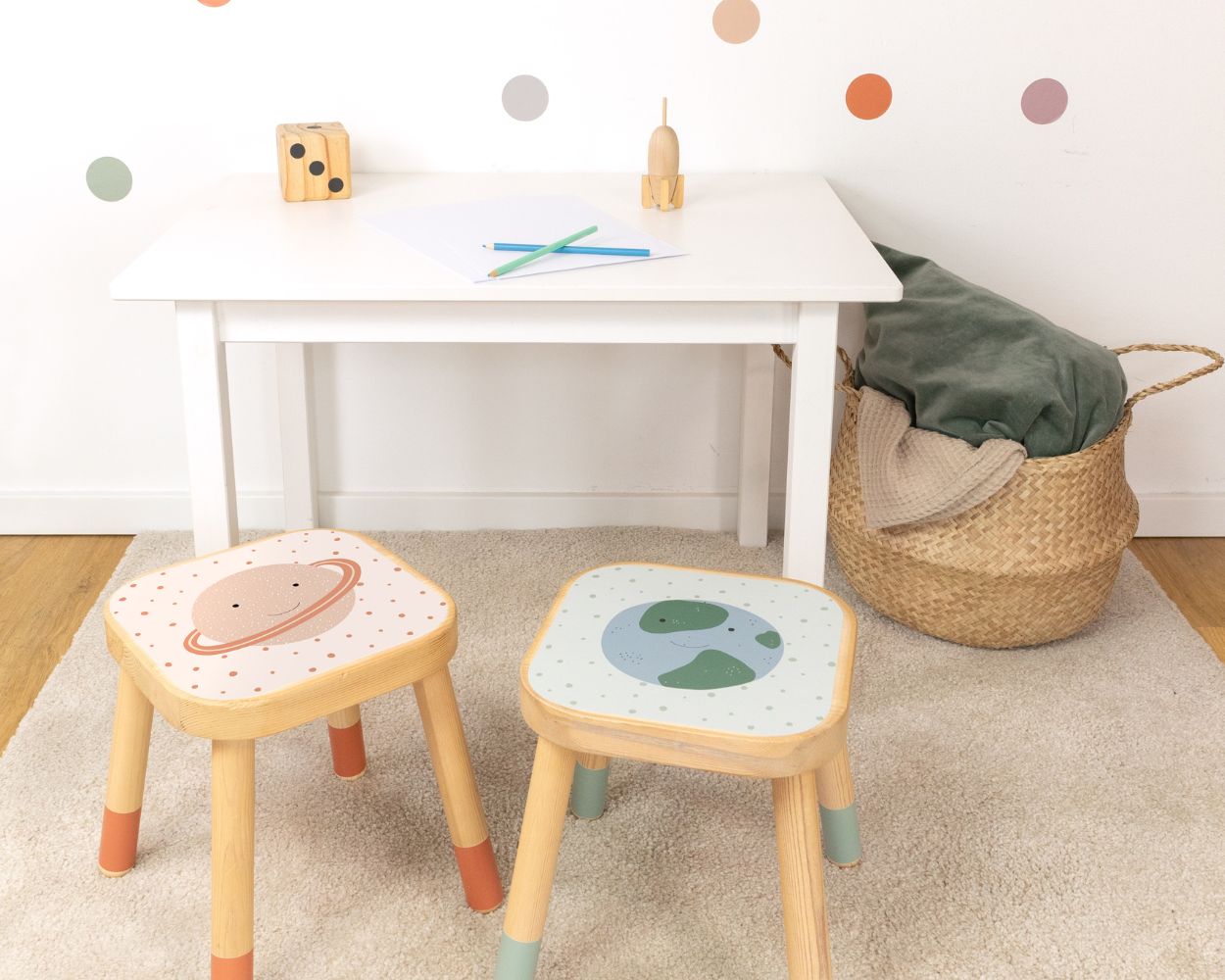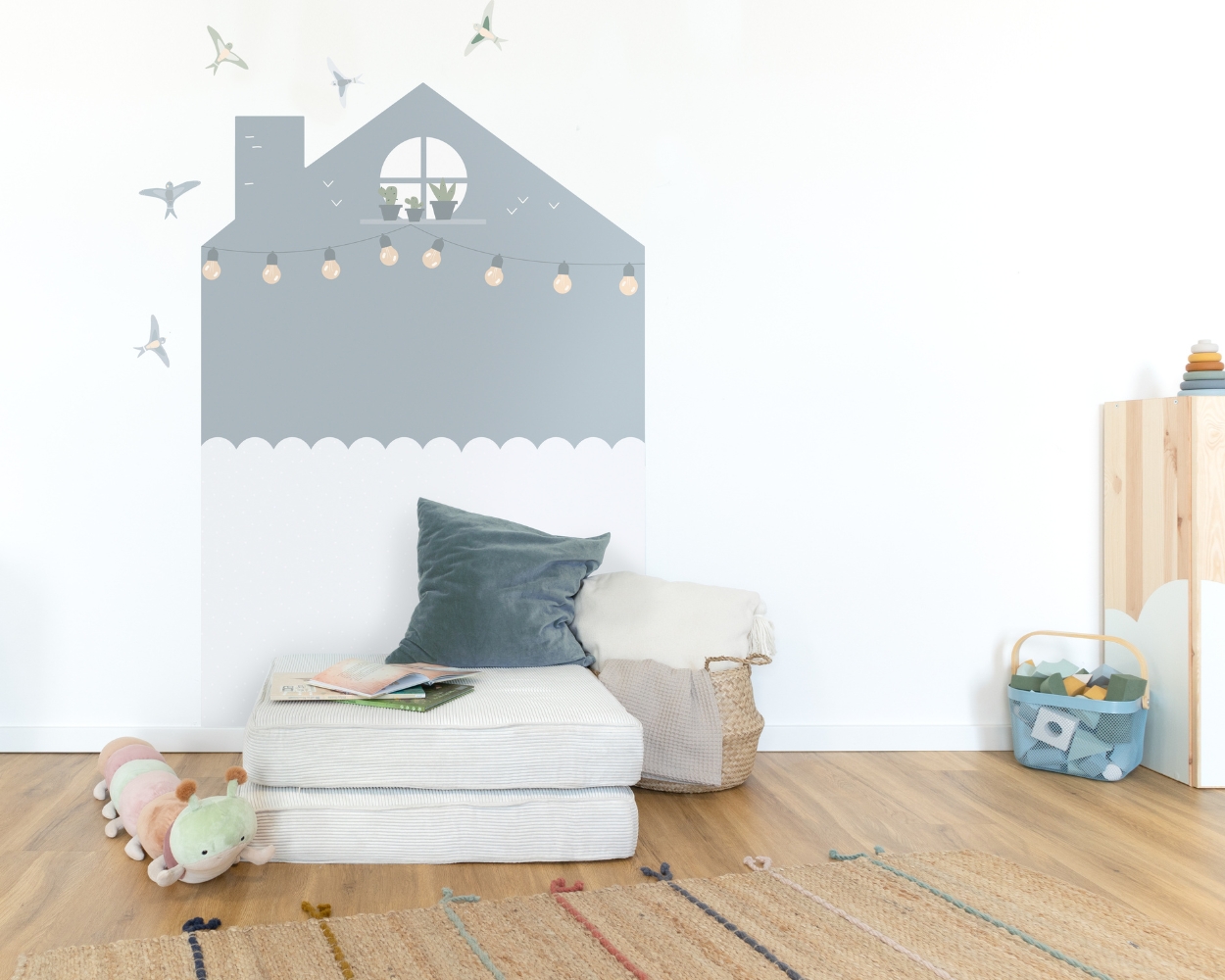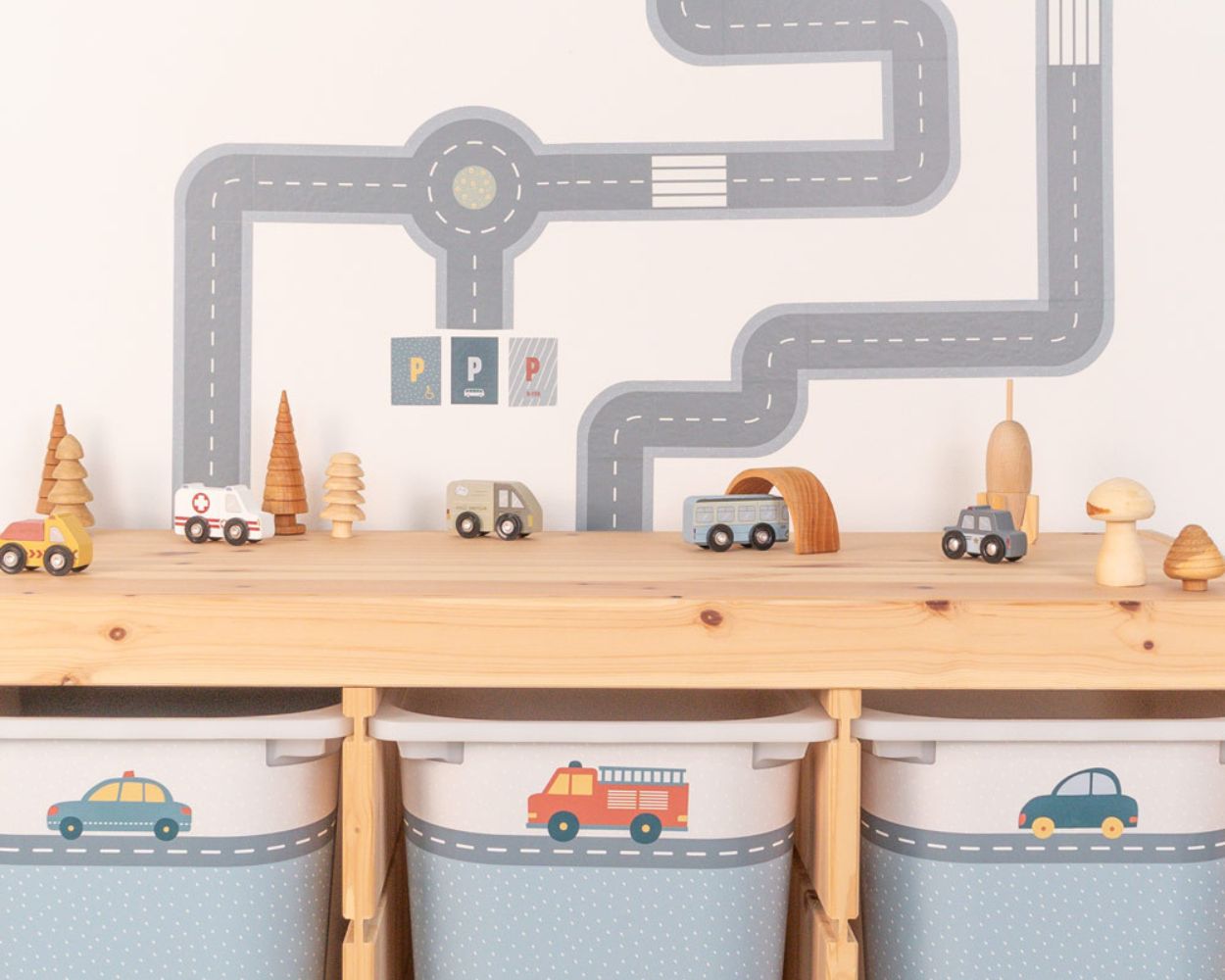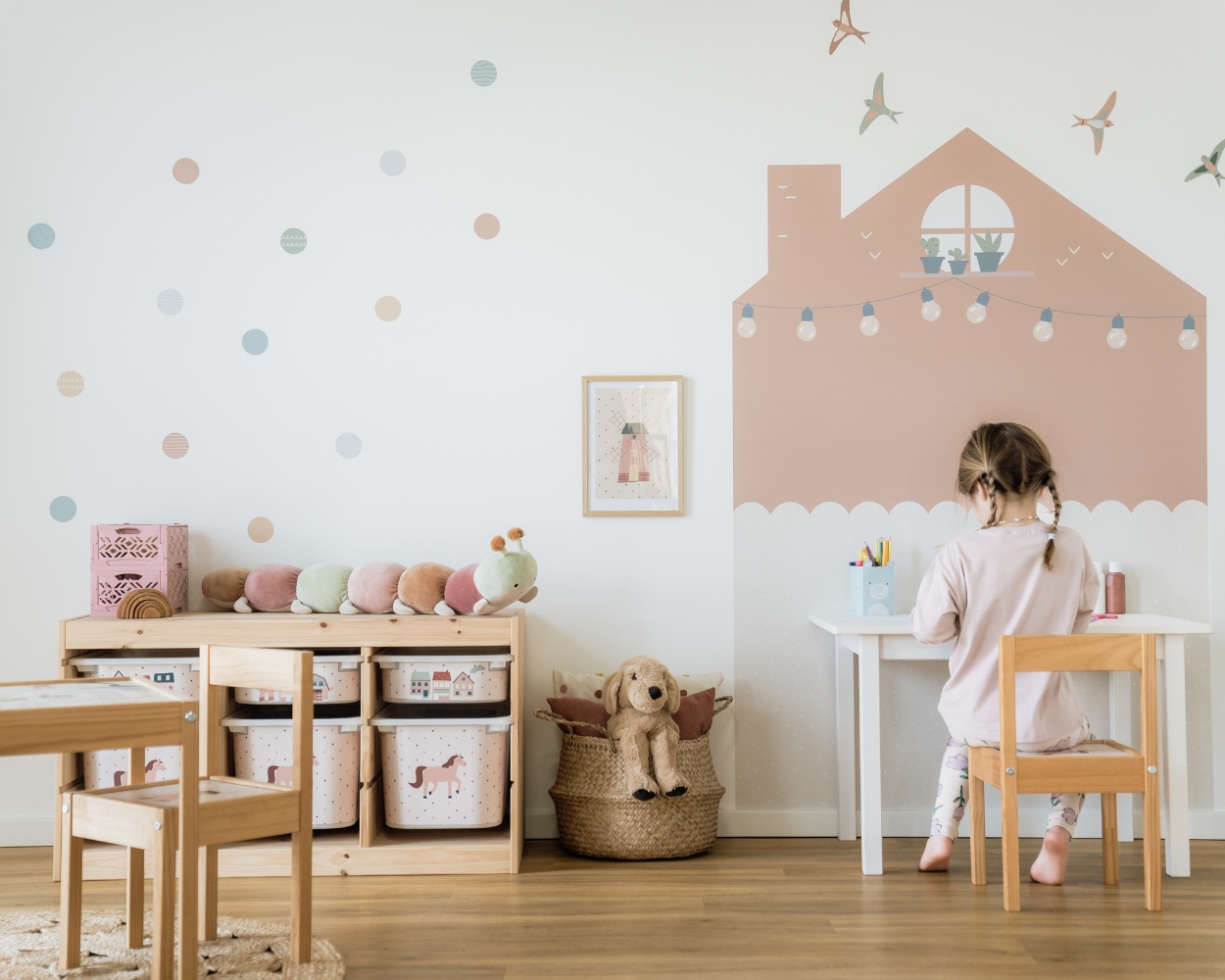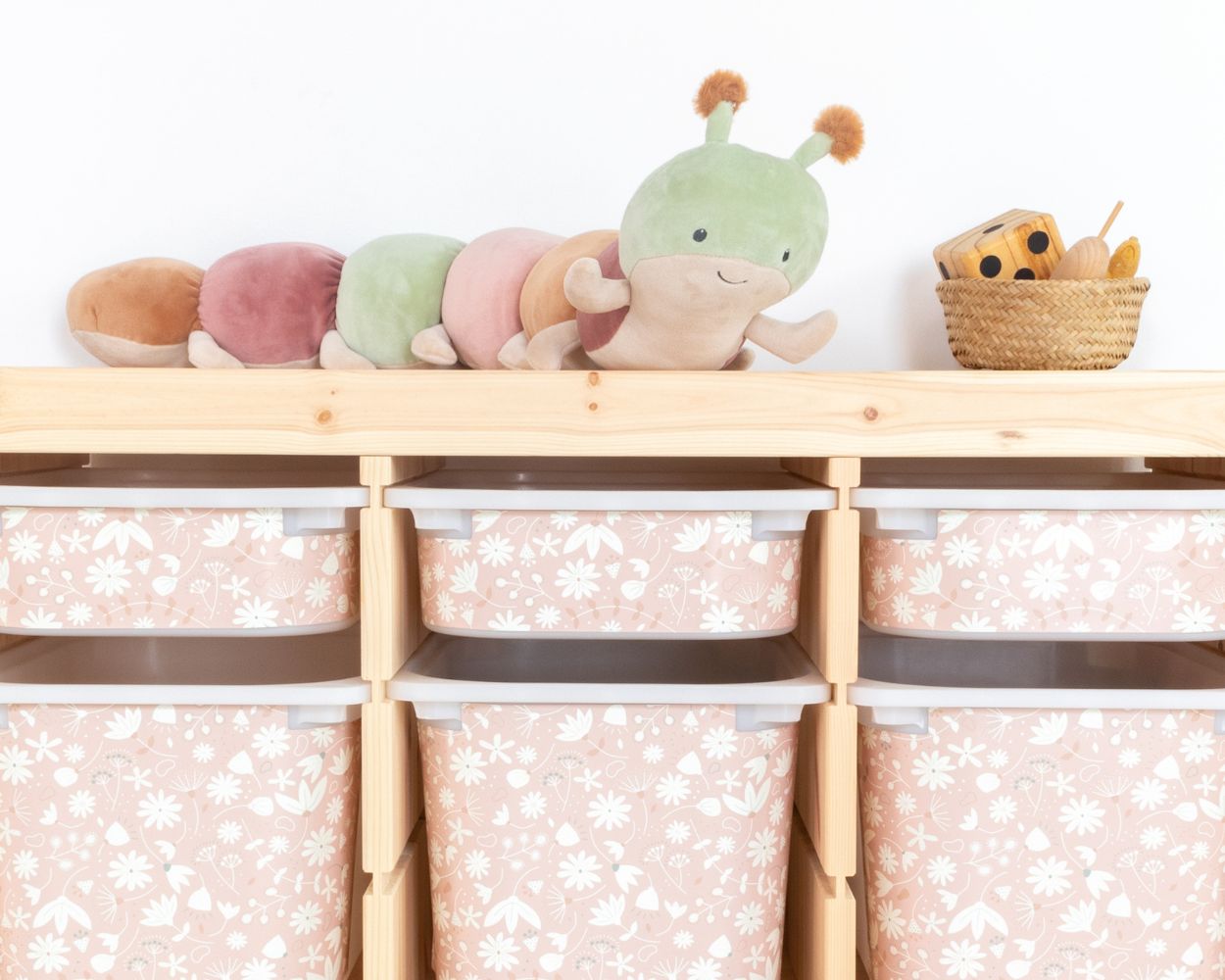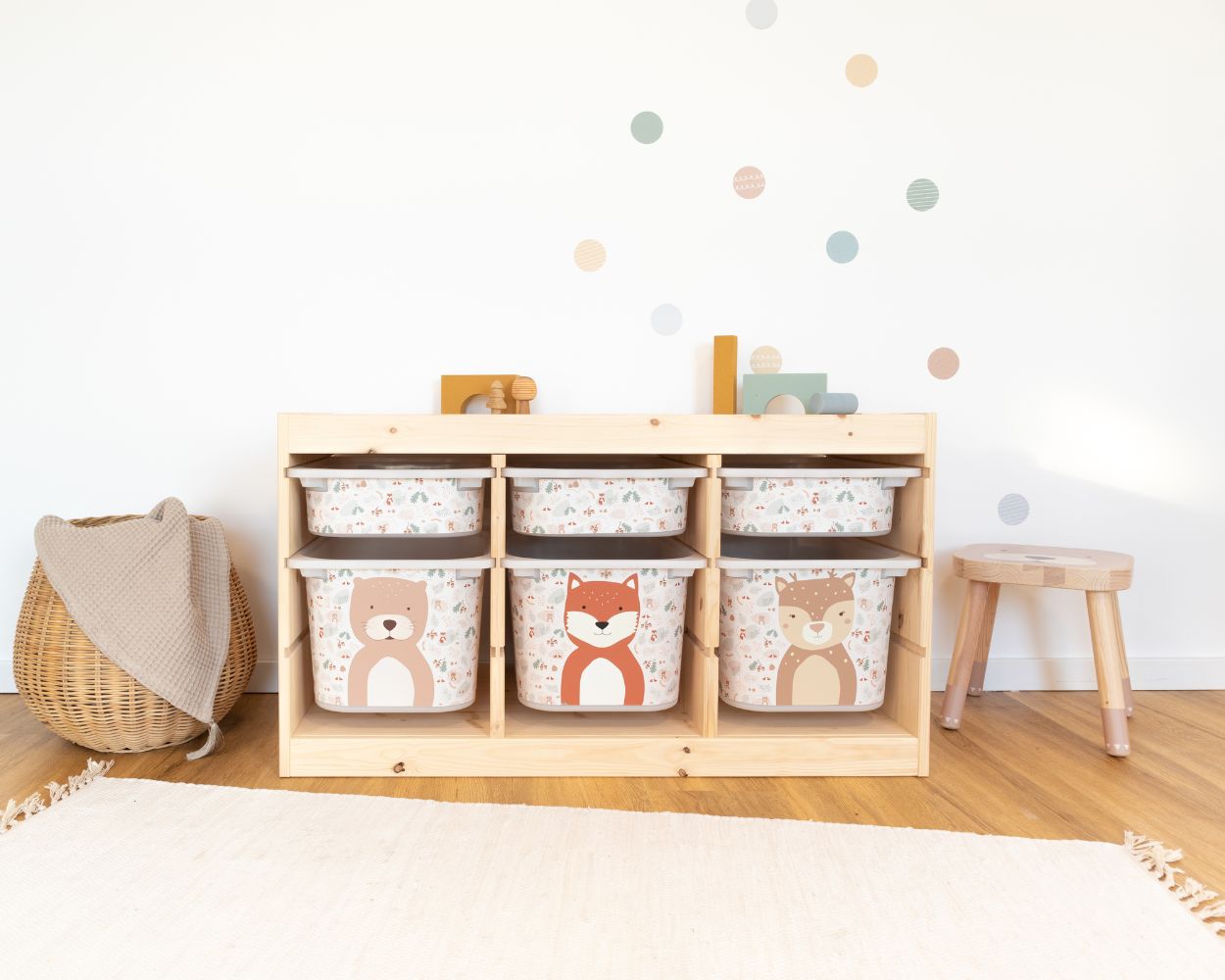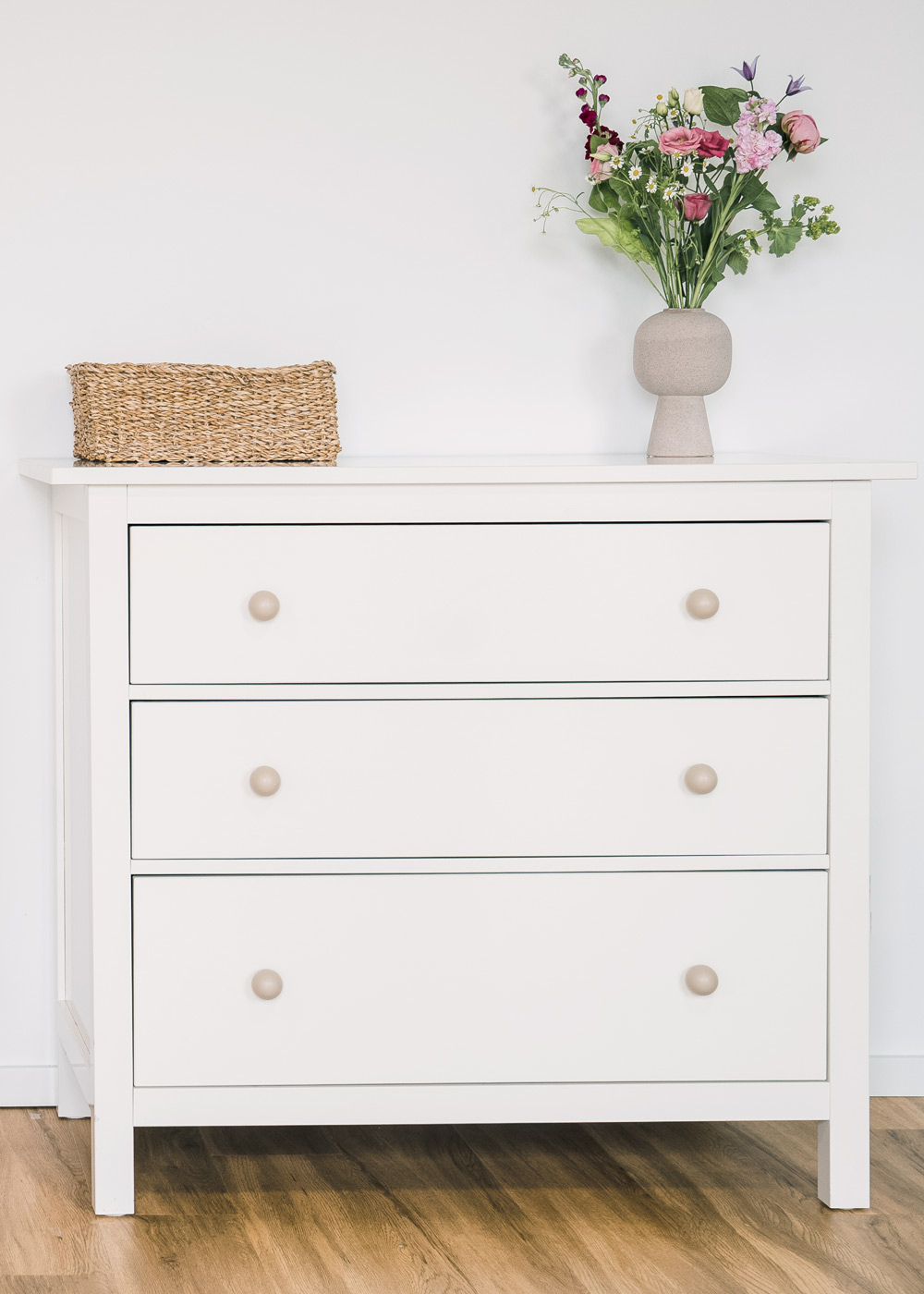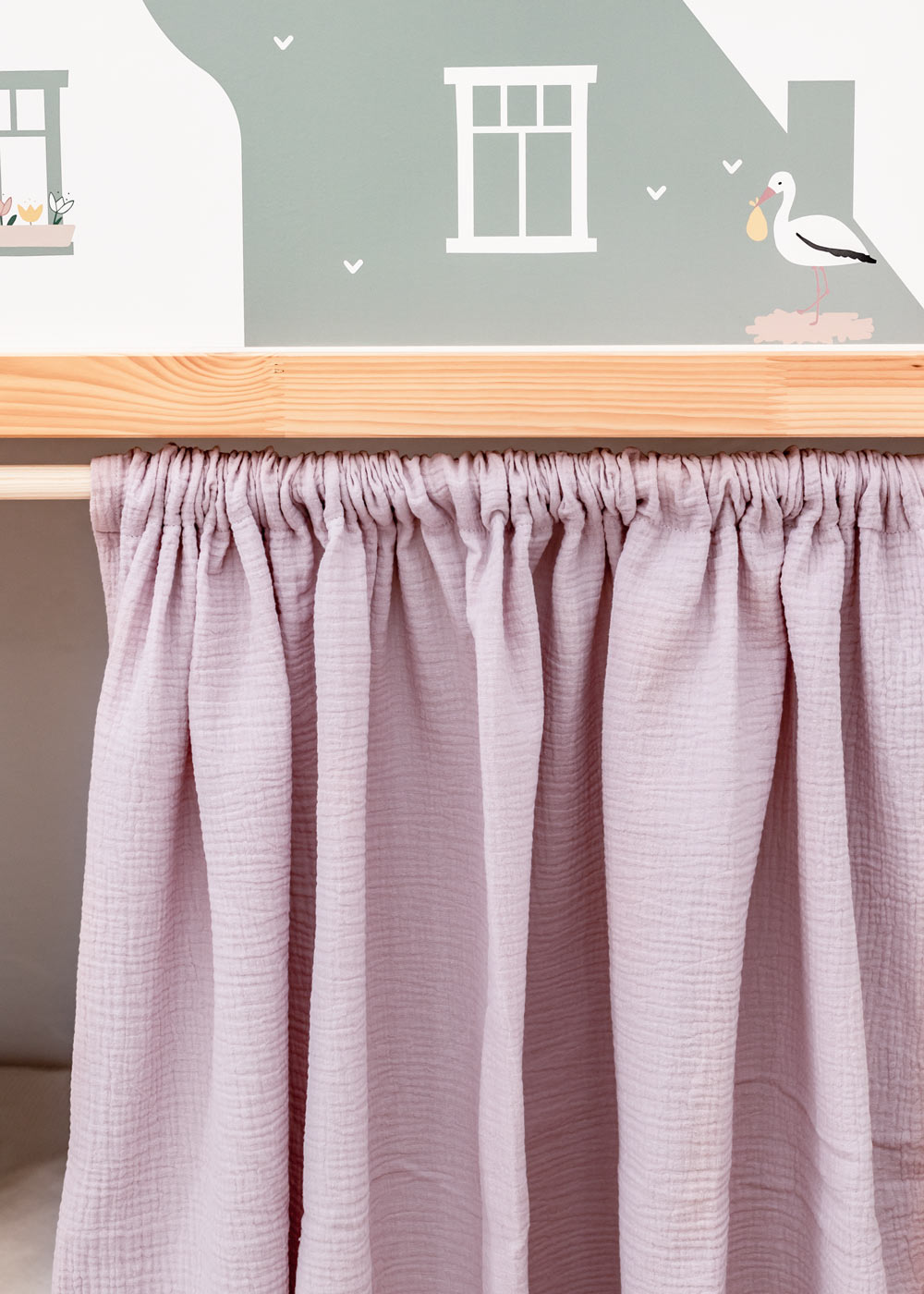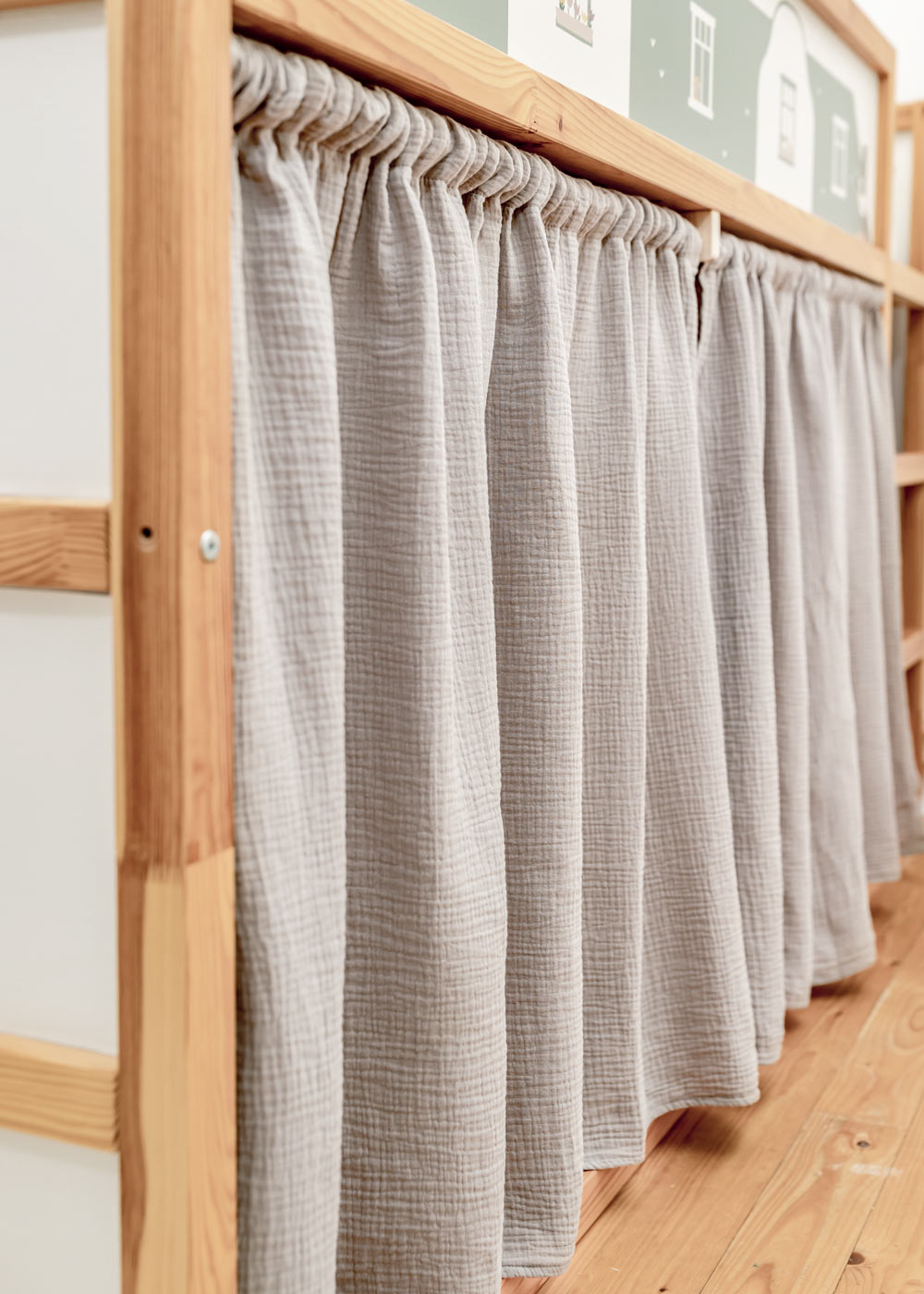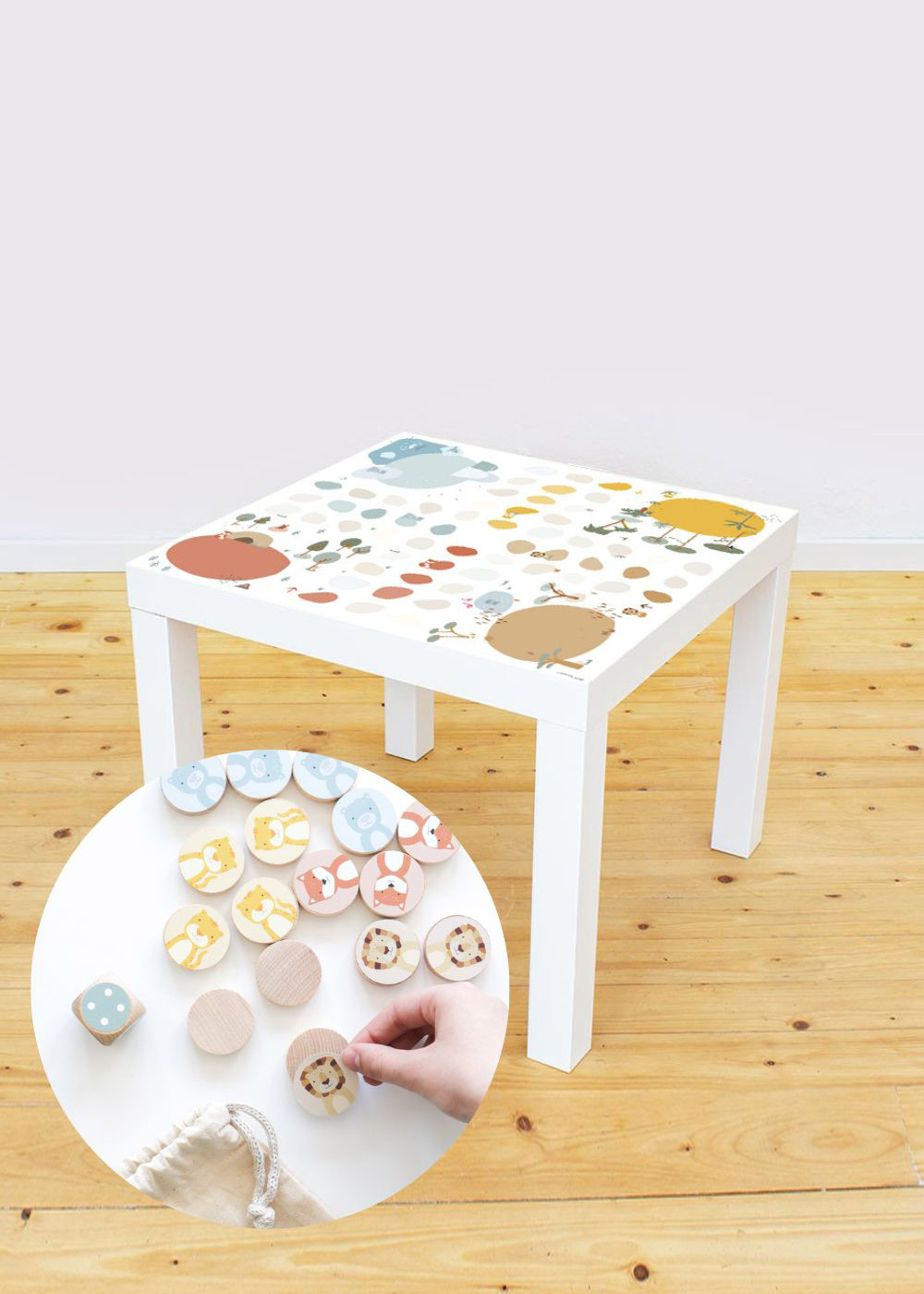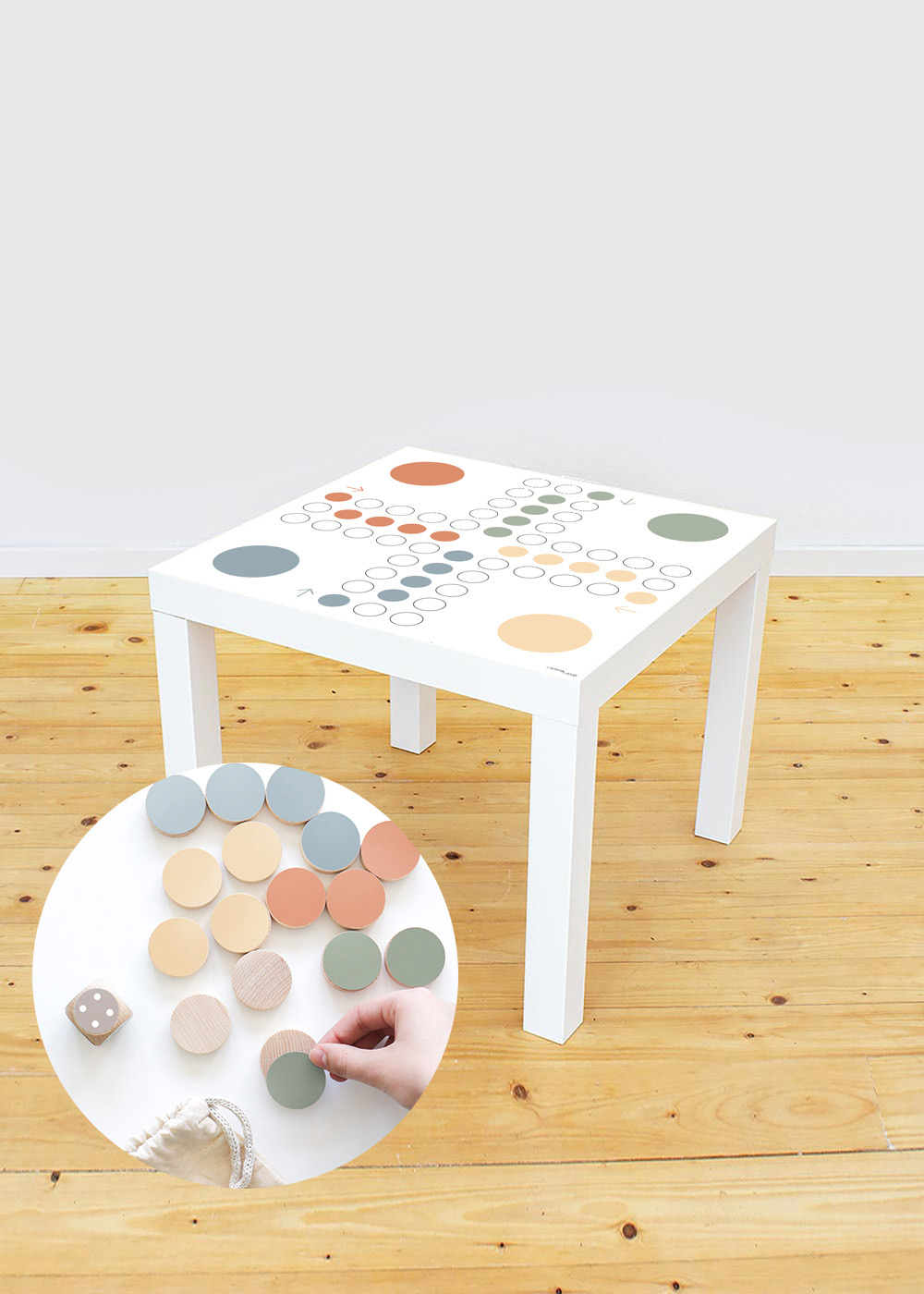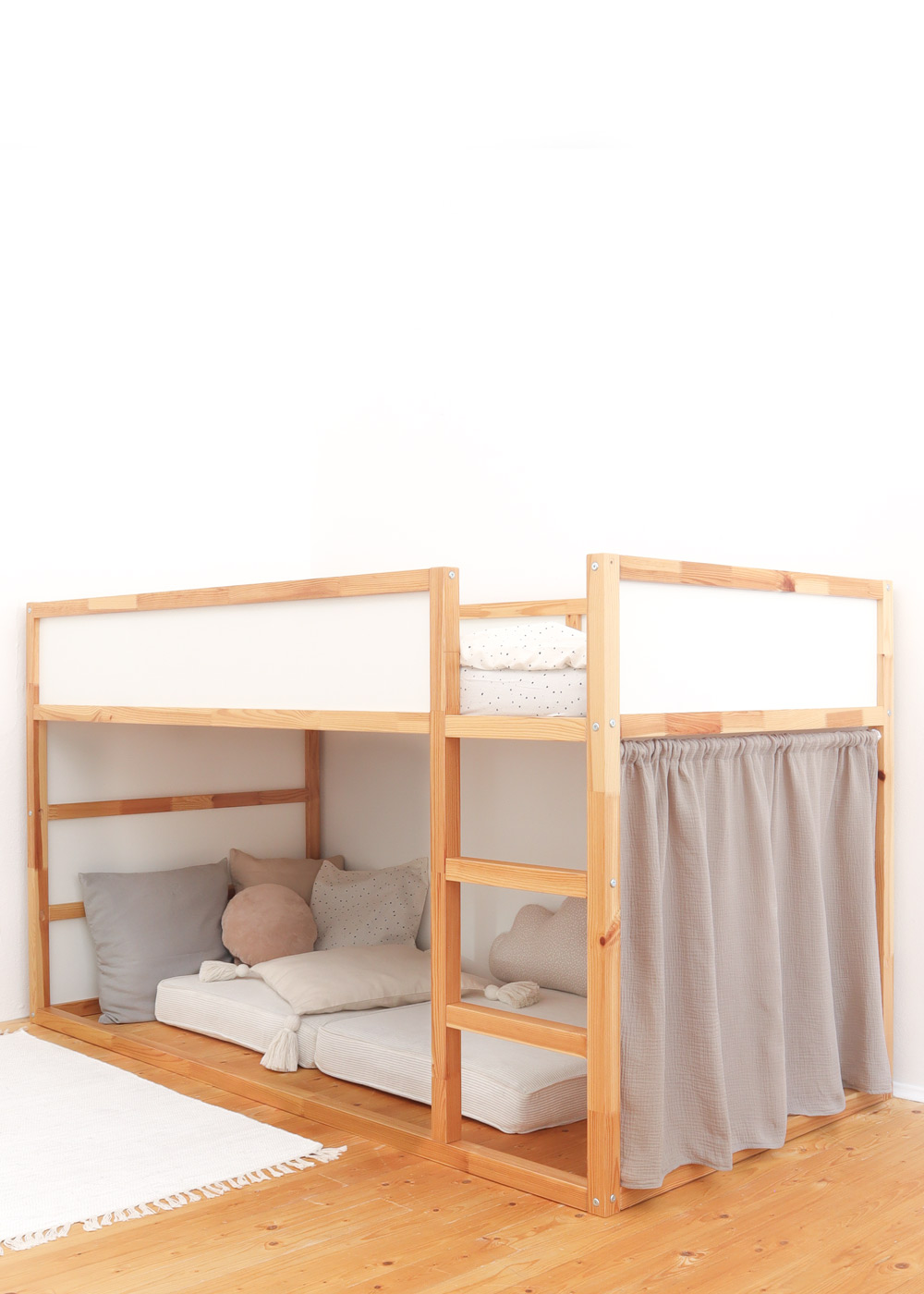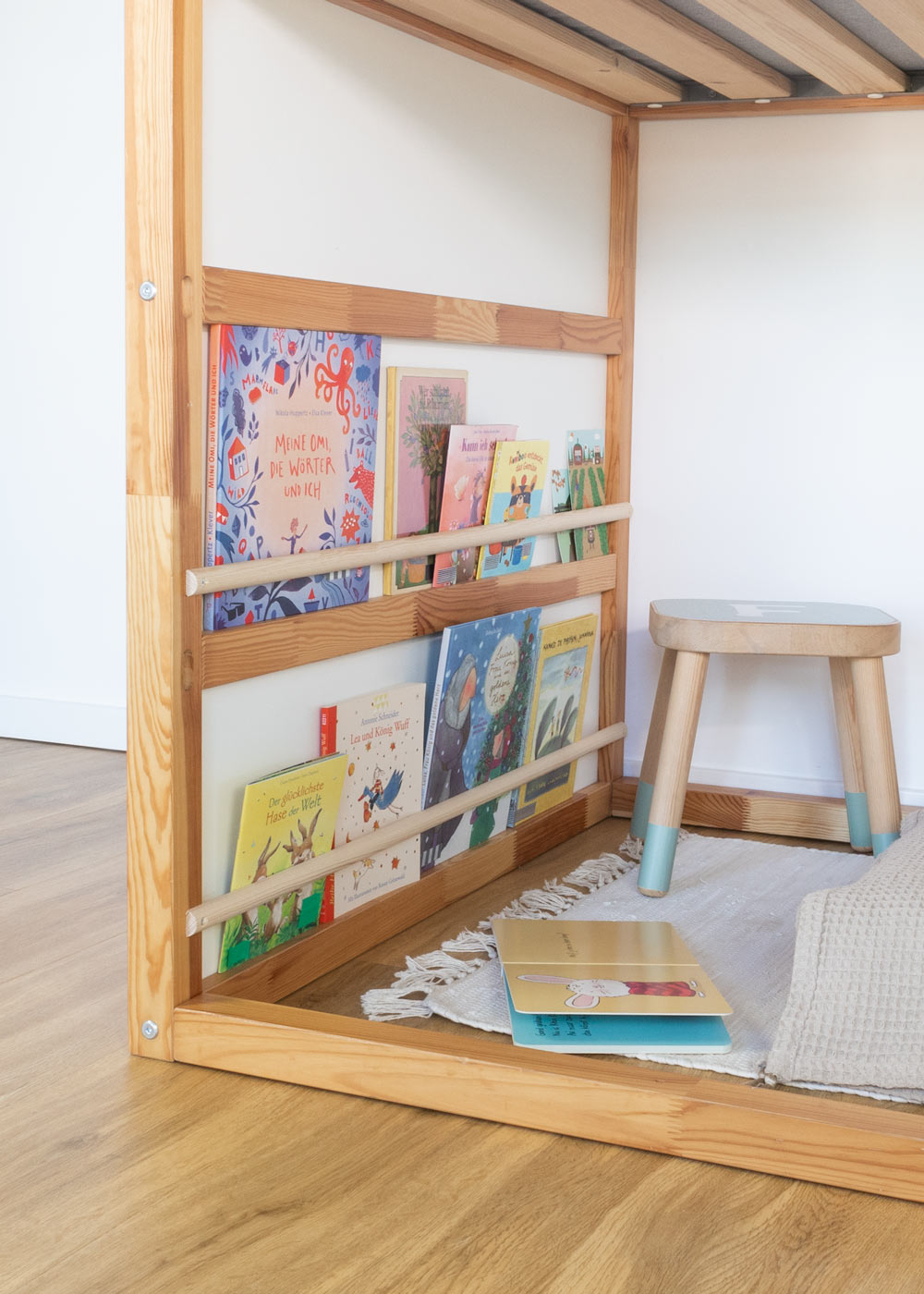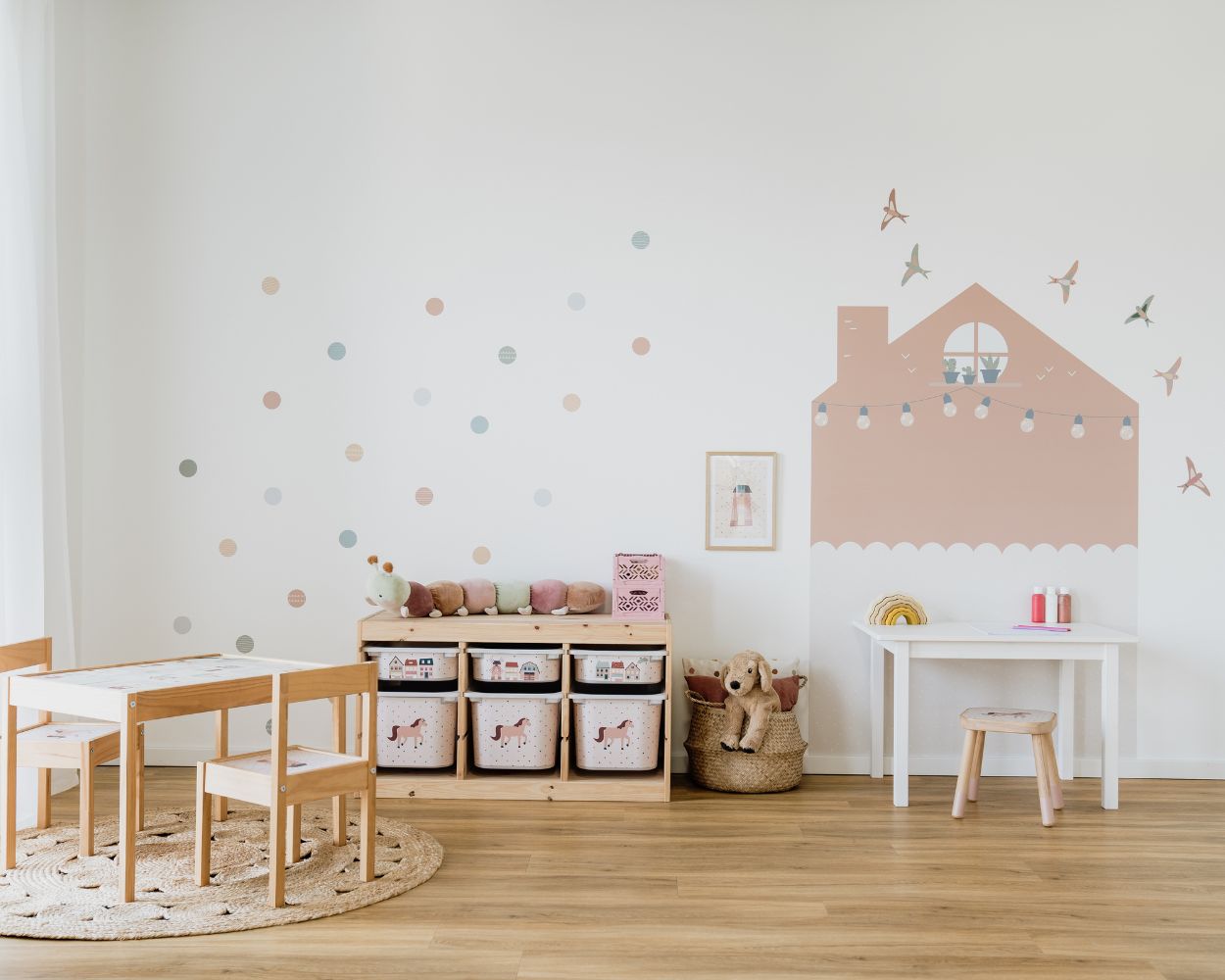
Creative ideas for play corners in primary schools
- Simple and cost-effective: laminate Simply cover your IKEA children's furniture and classics with our custom-fit design decal.
- Child-friendly and hygienic: All our adhesive films are CE-certified and free from solvents and dangerous plasticisers. The films can be wiped off with a damp cloth and are therefore quick and easy to clean.
5 reasons for a play corner in primary school
- Learning through play - Children learn through play and develop cognitive skills while playing.
- Promoting social skills - Playing together strengthens togetherness, team spirit and fairness.
- More movement & creativity - A play corner invites children to explore and experience.
- Promotes concentration & stamina - Learning is easier after short breaks.
- Fun without pressure - Not every game has to have a measurable learning objective - playing should simply be fun!
5 ideas for the perfect play corner in primary school
A well-equipped play corner brings variety to the classroom. Here are some creative ways to design an inspiring play corner:
- Play tables: Whether it's streetscapes or classic board games, play tables are flexible and encourage logical thinking and strategy.
- Role-playing corner: Children slip into different roles and practise social interaction.
- Maths play corner: Playfully practise arithmetic with Montessori materials or number puzzles.
- Puzzle & logic corner: Promotes patience, concentration and problem-solving skills.
- Creative craft corner: Colouring, crafting and designing - perfect for relaxation and imagination.
The play table - flexible and creative
A well-equipped play corner should not be without a good play table. Our customised adhesive foils transform IKEA classics such as the LACK table or the TROFAST shelf into fascinating play worlds. From small streets and imaginative landscapes to colourful board games, everything is included. The robust and scratch-resistant surfaces are ideal for intensive use in classrooms. They are easy to clean so that everything is clean again in no time at all, even after a long day of crafting or colouring. This hack will also bring variety to your play corner!
The children's stool - the versatile everyday helper
Small stools can be used in a variety of ways in everyday school life. Whether for the chair circle, as a place to do handicrafts or as support while playing. With our creative stickers, you can transform simple IKEA stools into real eye-catchers. You can also use our customisable foils to design a separate stool for each child, which they can then use anywhere. The robust foil is also resistant to the daily adventures of the little ones.
Wall design - Colourful accents for a big impact
It's often the small details that bring a room to life. With wall tattoos in a child-friendly design, you can achieve this easily, inexpensively and without a lot of manual labour. The wall design is a clever way to embellish a room, delineate areas and create your own play worlds. The easy-care and hard-wearing films are quick to apply and can be removed just as easily without leaving any residue - perfect for everyday school life!
TROFAST - storage and organisation
Smooth everyday life in the classroom needs good storage and organisation solutions. The TROFAST shelf with its large, removable drawer is an ideal solution for this. Our adhesive foils help to transform the shelf into practical and attractive organisational aids. Toys, craft materials and books can be organised in no time at all with themed stickers or self-writable foils. The shelf can be wonderfully transformed into an eye-catcher in the room with our patterned adhesive foils or customised to match the rest of the decor. The robust and durable films with a great design make tidying up a real pleasure.
Play corner in primary school: Playing is also part of the lesson
Lena is a passionate teacher. She shows us how she incorporates games into children's everyday learning. She shows us her play corner at primary school and explains why play should not be neglected at school.
Play is not a game, it is serious and deeply meaningful. (Friedrich Fröbel)
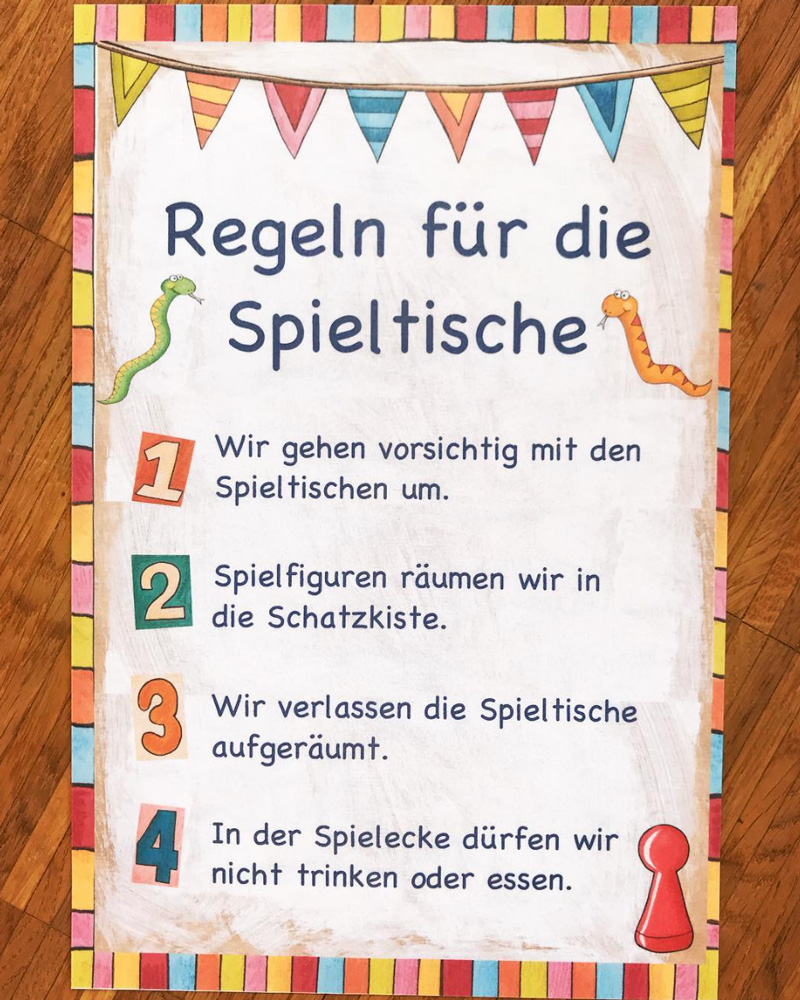
Playing makes school
When we play in the classroom, we learn - but not vocabulary or arithmetic! We learn without realising it, because the focus is on play. And what we learn is not exactly little. Playing promotes personal and social skills. Children learn to stick to existing rules or invent new rules together. All this happens all by itself in the play corner at primary school.
Those who play, learn! Those who learn, live! If you live, you play! (Jörg Roggensack)
Even losing has to be learnt: children at primary school often find it difficult to lose. But they also have to learn to deal with it. The children must be able to recognise and accept losses. And the winners? Children often celebrate their victory exuberantly and hurt the feelings of their team-mates in the process. Who hasn't said "Ätsch-Bätsch" before? To ensure that both losers and winners want to play together again, it is important to play in a socially acceptable and fair way. Because fairness is very important in the play corner at primary school. Of course, the teacher also has a role to play here: we have to support and encourage the pupils. The loser is more important than the winner. Teachers should be role models and make the pupils aware that a fun game in the classroom can also be a win.
Play corner in primary school strengthens the sense of togetherness
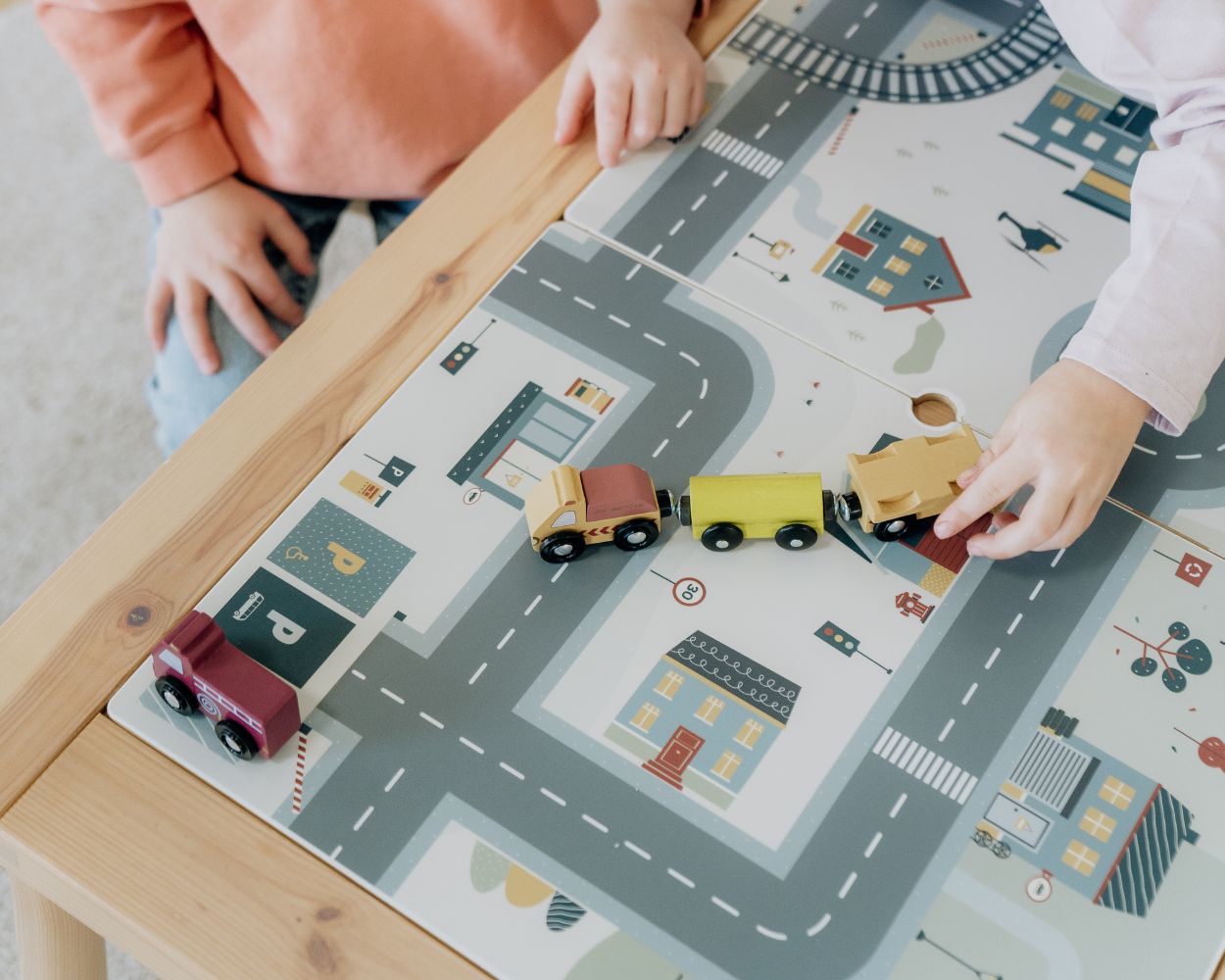
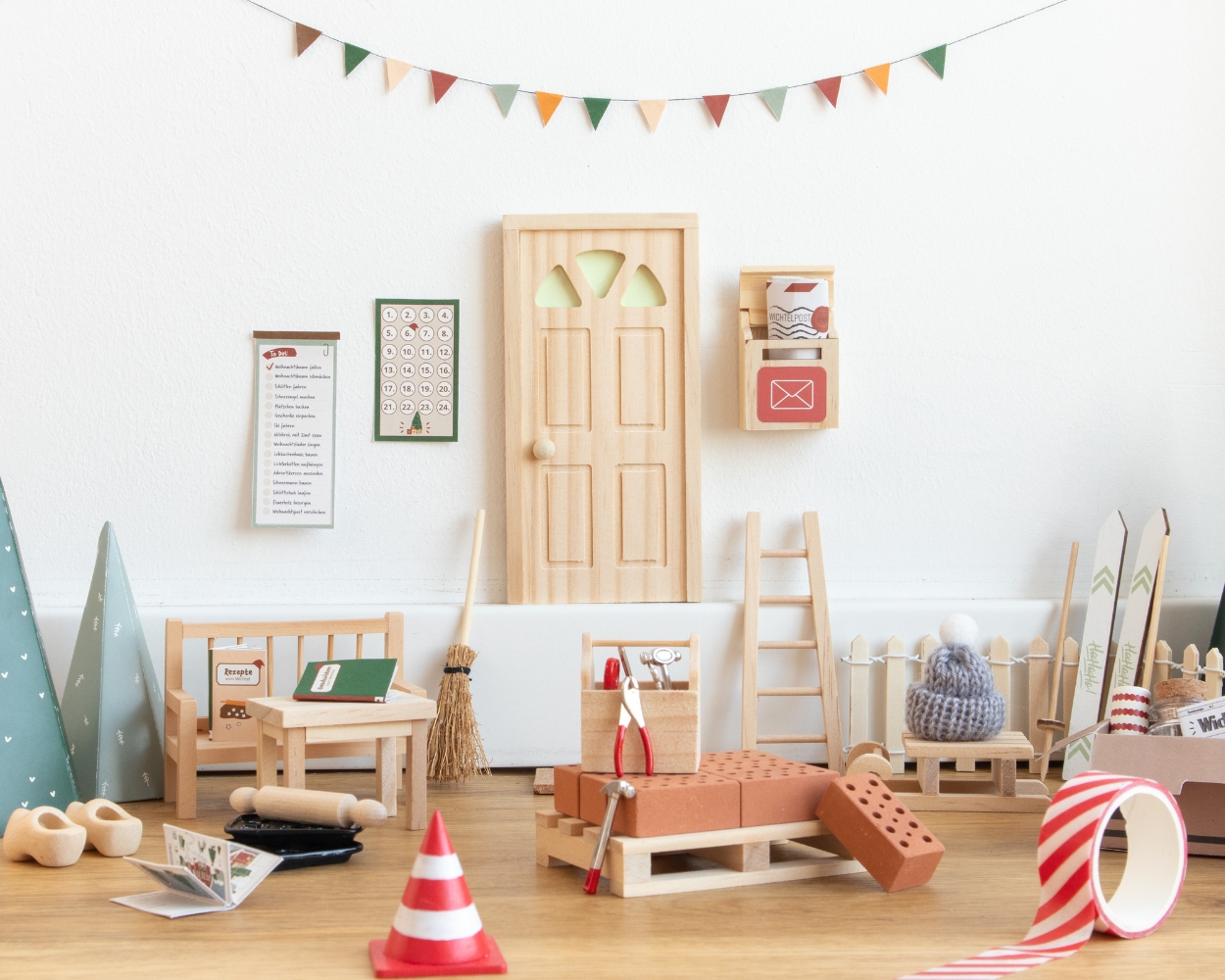
Christmas magic at primary school: The elf
The Christmas magic of the gnome not only belongs in your home, but can also inspire children in primary schools. The elf brings joy and Christmas spirit, but can also playfully convey educational content and strengthen team spirit. He lives behind a small door and plays tricks at night, writes letters or brings the little ones tasks or Christmas carols. We show you the best elf pranks for groups and tell you how to best prepare elf season for primary school.

